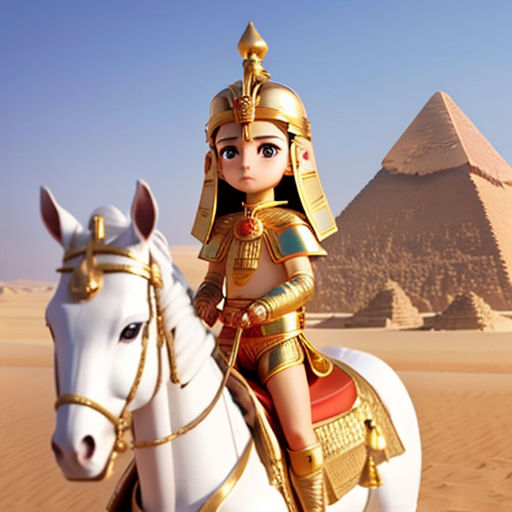
The Lost Pharaoh's Quest
By Storybird

12 Jul, 2023

The civilization of ancient Egypt is known for its remarkable achievements in art, architecture, astronomy, and more. Their lives, while incredibly different from ours today, reflect an intricate level of design and sophistication.
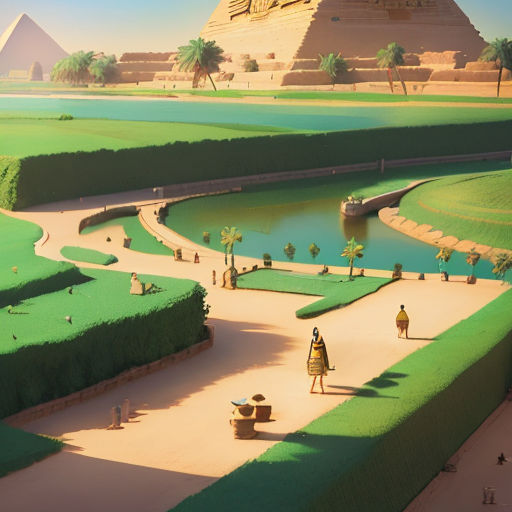
Life in ancient Egypt revolved around the Nile River. For thousands of years, the seasonal flooding of the Nile made the surrounding land extremely fertile, perfect for farming.
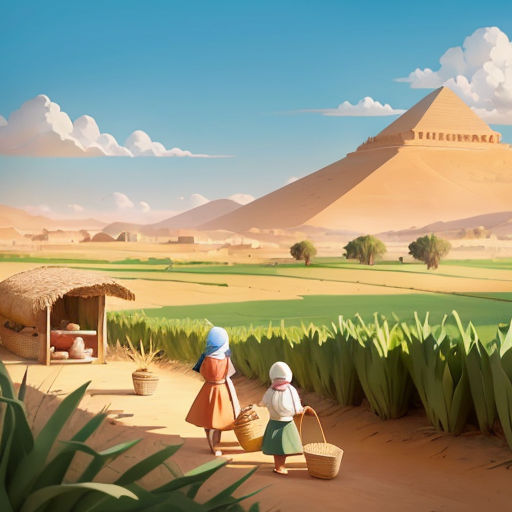
The Egyptians planted wheat and barley, their staple crops. They also grew vegetables like onions, leeks, and garlic, and fruits like dates and figs.
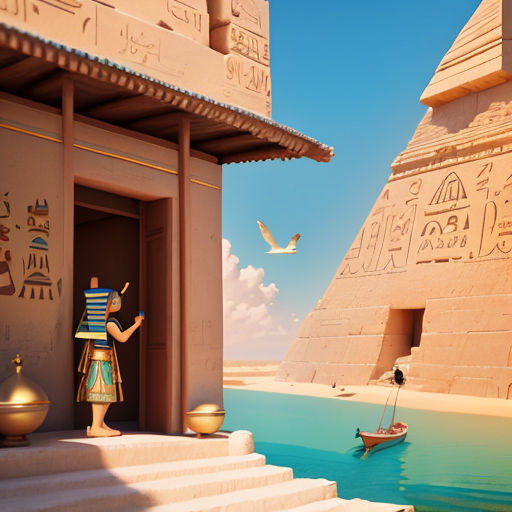
Food wasn't just grown, but also caught. The Nile teemed with fish, and Egyptians would regularly hunt birds in the marshes or catch them with nets.

The ancient Egyptians believed in a pantheon of gods and goddesses, with the sun god, Ra, at the top of the hierarchy. Temples dedicated to these deities dotted the landscape.
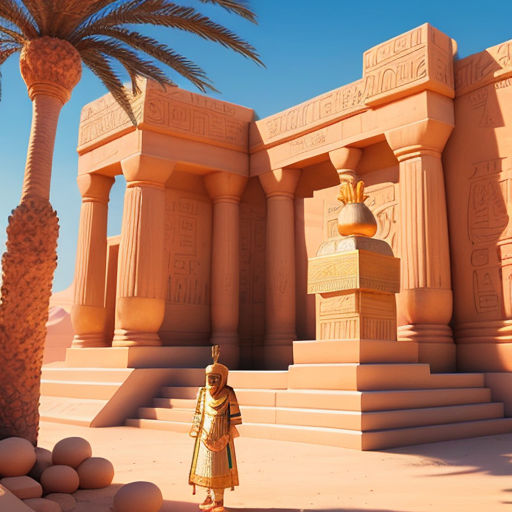
Religion was a large part of daily life, with Egyptians praying for success in love, protection from harm, and good harvests. They believed that pleasing the gods would ensure a good life and afterlife.
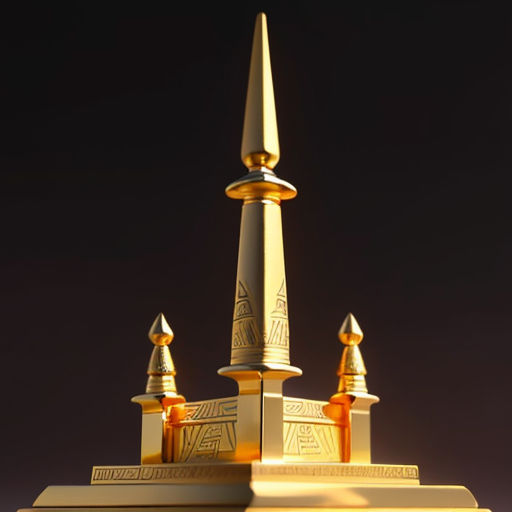
The Pharaoh, Egypt's ruler, was considered a god on earth. He or she had the crucial role of ensuring harmony and balance, known as Ma'at, were maintained.
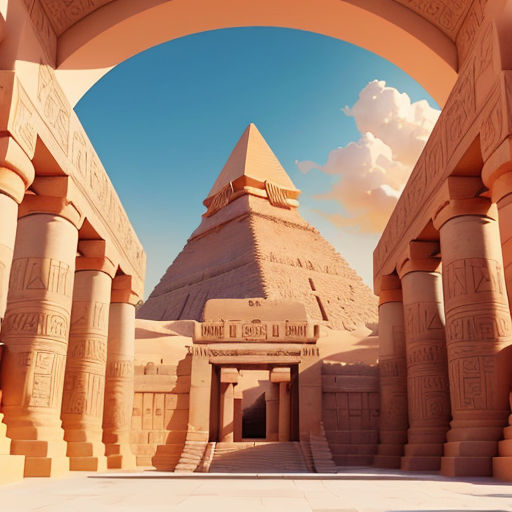
The ancient Egyptians built grand structures like pyramids and temples to honor their pharaohs and gods. They believed that the grander the structure, the happier the gods would be.
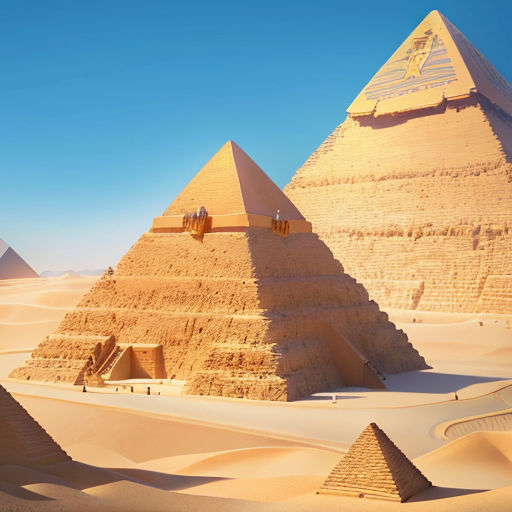
The Egyptians were master builders. The Pyramids of Giza, built as tombs for pharaohs, are a testament to their architectural prowess and remain standing today.
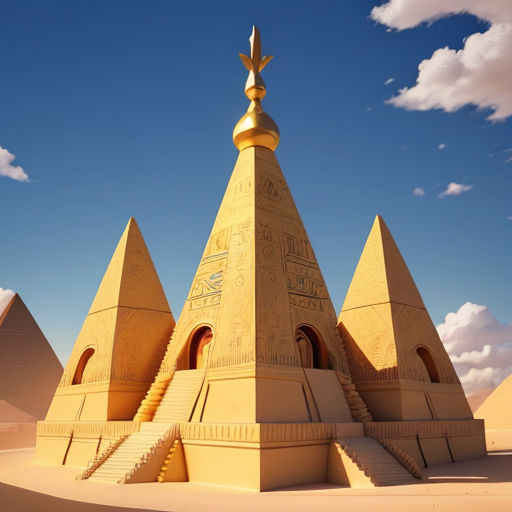
Egyptian society was hierarchically structured. The Pharaoh was at the top, followed by nobles, priests, soldiers, scribes, merchants, and farmers. Slaves and servants formed the lowest strata.
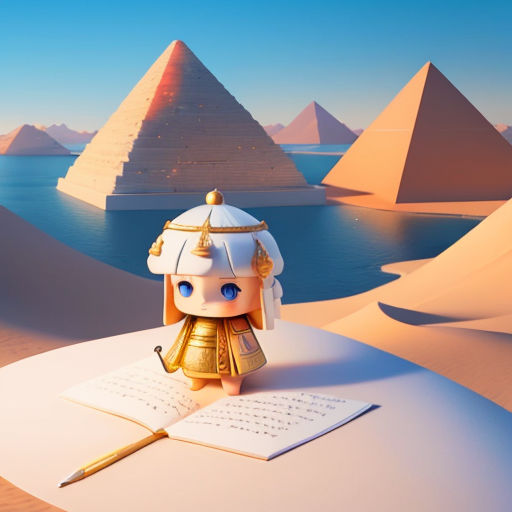
Scribes held a prestigious position in society. They were responsible for keeping records, and only they could read and write the complex hieroglyphs that formed Egyptian written language.
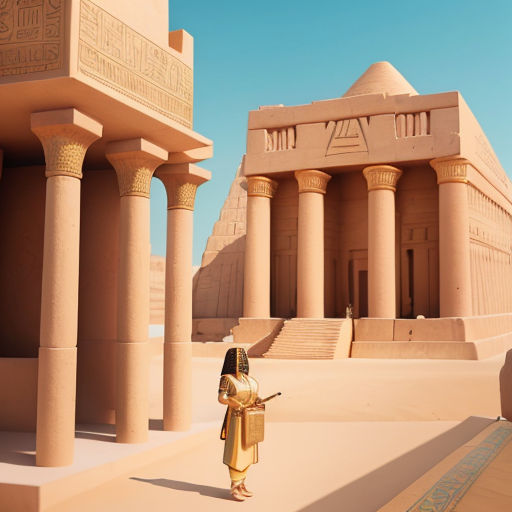
Women in Egypt had more rights than in other ancient civilizations. They could own property, run businesses, and even initiate divorce. Some women, like Hatshepsut, even ruled as pharaohs.

Education was mostly for the elite. Young boys from noble families would be taught mathematics, science, and writing, while girls would learn domestic skills from their mothers.
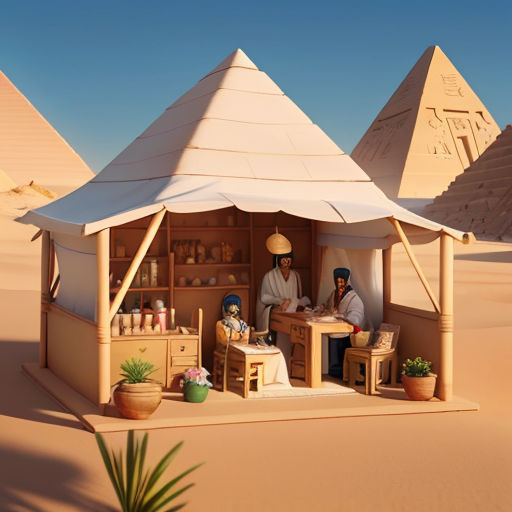
Egyptians were known for their advanced medical knowledge. They could set broken bones, treat burns, and even perform surgeries. They also had an understanding of diseases and their treatments.
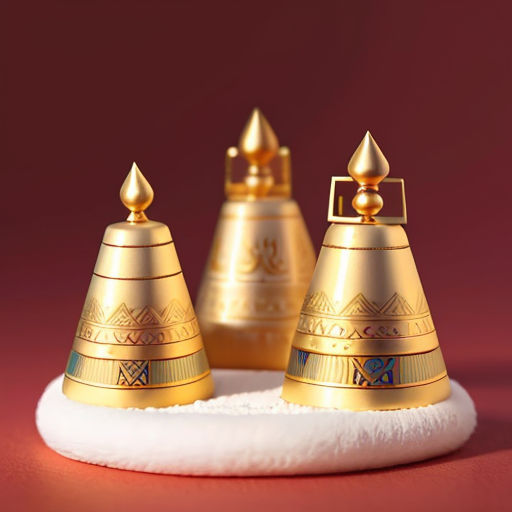
The ancient Egyptians were also famous for their love of beauty. They wore linen clothes, elaborate jewelry, and perfumes. They believed that cleanliness and grooming were signs of holiness.
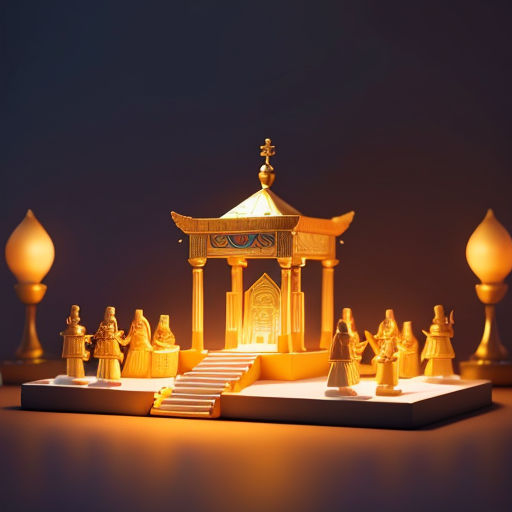
Music and dance were integral parts of Egyptian life. They enjoyed singing and playing instruments during religious ceremonies or at parties.
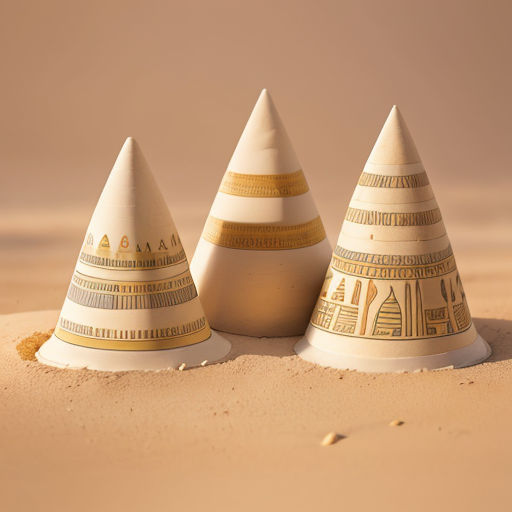
The most recognized aspect of Egyptian culture is their burial practices. They mummified their dead to preserve them for the afterlife, a process that could take up to seventy days.
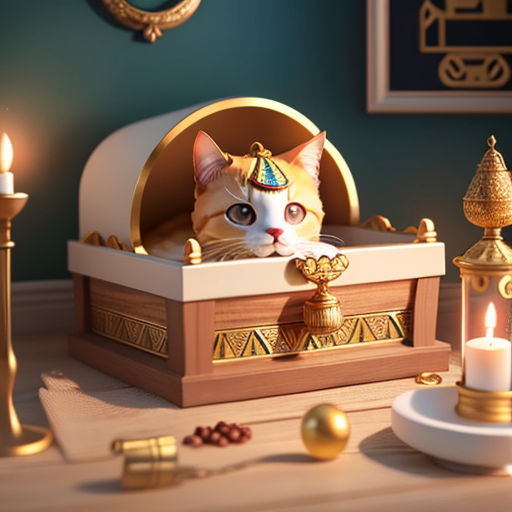
The mummy was then placed in a coffin or sarcophagus, alongside food, personal items, and sometimes even pets, believed to be needed in the afterlife.
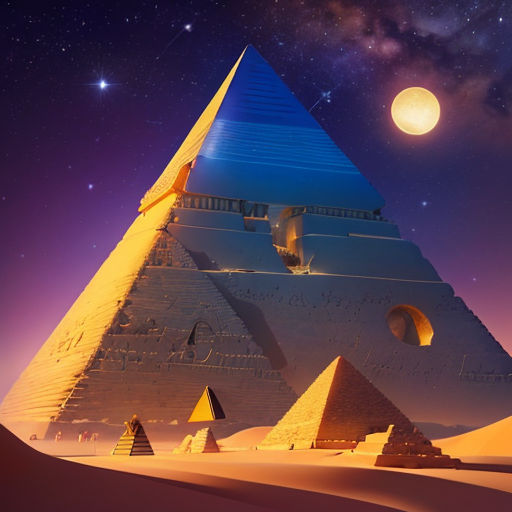
The ancient Egyptians also had a well-developed understanding of astronomy. They used it to create their calendars and determine the best times for planting crops.
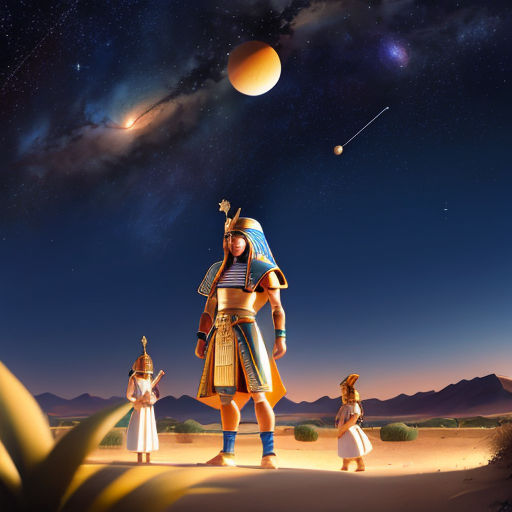
The Nile's flooding, Egypt's agricultural successes, and their understanding of the seasons were all linked to their observations of the stars and planets.

Ancient Egypt wasn't an isolated civilization. They traded with nearby regions like the Land of Punt and Nubia, exchanging goods like gold, ivory, spices, and even animals.
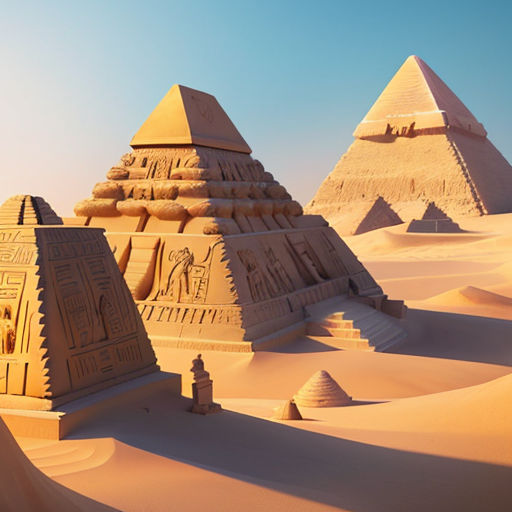
Despite the passage of millennia, the allure of ancient Egypt remains powerful. Their monuments still stand, their mummies continue to fascinate, and their hieroglyphs offer glimpses into their world.
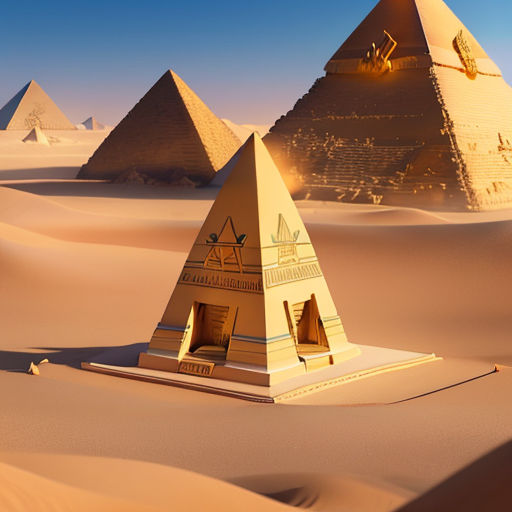
Ancient Egyptians' contributions to art, science, architecture, and culture continue to influence our world today. The civilization may be long gone, but its legacy is far from forgotten.
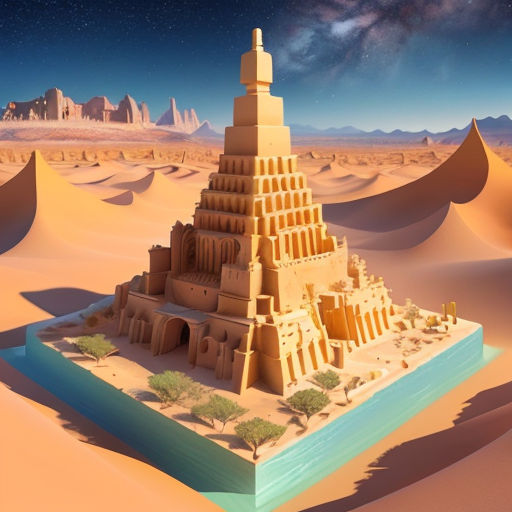
As we delve deep into their history, we continue to unravel more about this fascinating civilization. Each discovery adds a new layer to our understanding of their life and culture.
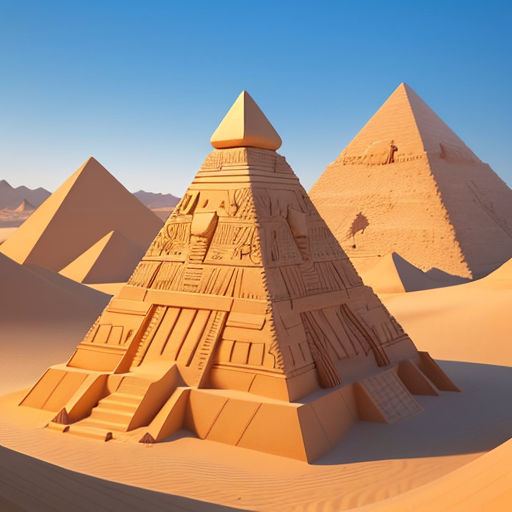
In understanding the life of the ancient Egyptians, we not only learn about their accomplishments but also about mankind's shared history, our collective achievements, and our enduring quest for knowledge.